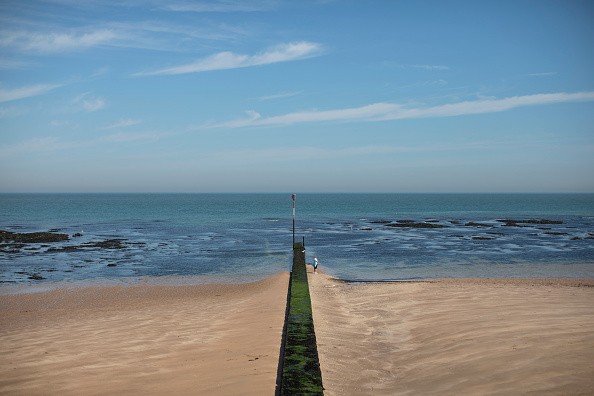Recep Tayyip Erdogan, Turkish President has said, "We will save our seas from this mucilage calamity."
Sea of Maramara
The sea of Maramara, which lies within Turkey and parts Istanbul between Europe and Asia, is festered with a new challenge-sea snot. The enormous mass of organic matter has possessed the water body, disturbing the local communities and aquatic ecosystem. The crisis has been prompted by global warming and greater pollutants.
Amid growing worries over the stockpiling of the slimy green sludge, Turkey has made a vow to rescue its shores from new development building up in its waters. "We will save our seas from this mucilage calamity," said Recep Tayyip Erdogan, Turkish President..The sludge has also been noticed in the nearby Black Sea and Greece's Aegean Sea, which are linked by the Sea of Marmara.

Sea Snot
Now the government has unleashed a massive campaign to eliminate the crisis that threatens Turkey's marine ecosystem. Sea snot is a thick, slimy grey-brown sheet referred to as marine mucilage that is formed by living and dead organic material. The sludge forms when algae overburdened with nutrients fests on warm weather because of climate change.
It is to be well known that algae are the key source of maintaining oxygen concentration in water bodies, however, if their growth is left unnoticed, they could bring about the formation of this mucilage that could restrict sunlight from going into the deep waters. Sea-snot was first discovered in Turkey in 2007.
However, the current outbreak is the biggest in its history. While the specific cause of their uncontrolled growth is being ascertained, one major reason is pollution from organic compounds such as phosphorous and nitrogen. Meanwhile, the rising water temperatures have also played their role.

Agricultural and Industrial Runoff
Head of METU's Institute of Maritime Sciences, Baris Salihoglu told DW: "We are aware that the water temperature in Marmara has risen by 2 to 2.5 degrees Celsius over the past 20 years, more than the global average."
The sea is surrounded by a population of almost 20 million people, which has prompted overfishing in the region leading to a major loss to the aquatic biodiversity making it susceptible to such outbreaks. Agricultural and Industrial runoff has also been adding to Marmara's degradation.
The Sea of Marmara links the Black Sea to the Aegean Sea, which is an essential trade route for the region. Presently, boats have to negotiate through the thick sludge in the Marmara, however, if it extends uncontrollably to the Black Sea it could lead to a global problem. President Erdogan said his fear is that if this extends to the Black Sea, the trouble will be enormous. He also said steps need to be taken without delay.
For more news, updates about sea snouts and similar topics don't forget to follow Nature World News!
© 2025 NatureWorldNews.com All rights reserved. Do not reproduce without permission.





